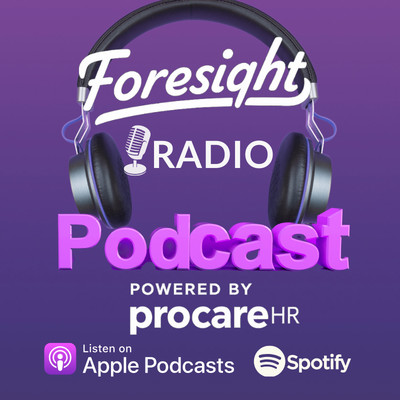By Steve Moran
One of the more fascinating presentations at the NIC Fall Conference last week was a discussion between Chuck Todd, the chief political analyst for NBC News, and Mike Levitt, who was a three-term governor of Utah and a member of George W. Bush’s cabinet.
The focus of their discussion was federal politics and what role the November election will play in the senior living health care sector. Rather than prognosticate on who will win, they talked about the implications of what the issues might be with Harris and with Trump. Here are the highlights:
- They both believe there is a 90-95% chance that we will end up with a divided government, largely because we are a divided nation. This means that neither party will likely be able to “dramatically move forward” their agenda.
- Right now it looks like the Republicans will take the senate and the Democrats the House.
- There seems to be little chance that we will have a centrist government, no matter what.
- For the last decade or so, there has been a sense in Washington that when Trump finally leaves the political scene, things in Washington, in national politics, will “get back to normal.”
- While there are some politicians like Paul Ryan who hope to create some fiscal sanity when it comes to how entitlements work, there seems to be zero appetite for this on the part of either Republicans or Democrats. It seems likely this problem, or rather set of problems, will only be solved when we hit a crisis point.
- Mike Levitt suggested, with respect to entitlements, that it feels a little like a country song titled “It’s Funny How Falling Feels Like Flying for a Little While.”
- It appears that Gen Xers are “screwed” — that boomers and millennials are getting all the benefits while the Gen Xers are being squeezed on both sides.
- One area where there is significant bipartisan support is some form of child care tax credit, but it will not likely happen until after the election.
- The overturning of the 1984 Chevron ruling will likely strip government bureaucracies of much of their autonomy in crafting regulations based on a broad ruling from Congress. It will force Congress to get much more granular about their intent when passing new laws and programs. This might, for instance, make the new nursing home staffing regulations more difficult to keep in place.
- Immigration has become much less of a partisan issue, with many people in both parties feeling that it should be harder to get into this country. Yet this comes at a time when we need more frontline workers to do jobs that many natural born Americans do not want to do.
- To contextualize the labor problem: In the mid 1970s, there were 4.6 workers per Medicare beneficiary. Today it is just slightly more than two.
- The reality is that neither party is likely to get much done advancing their big agenda items.
- The question of there ever being a viable third party came up, but the consensus was that it is unlikely to happen, even though we would likely have a healthier government with a third party. The problem is that today, fewer people than ever are voting for the middle.
- While there are a lot of people who hate the electoral college, it continues to serve a useful purpose. Without it, 13 major cities across the country would completely control politics, disenfranchising the rest of the nation.
- Largely because of Trump, before our eyes, the Democratic party and Republican party are experiencing a massive transformation, with Trump appealing to a group of people that were once the core of FDR’s New Deal — with fewer with college degrees, living in rural areas. And Democrats are appealing to those who have more formal education. The other big shift is that Trump has attracted the support of a significantly higher percentage of Hispanics, Blacks, and others who feel disenfranchised and alienated.
Hopeful
In our current political climate, it is easy to despair, but both speakers made the point that we need more faith in both the American people and our intricate system. The other thing is that while the political fights are mighty, we are really only fighting over maybe 10% of what the government does. Most things government does we actually agree on. Chuck Todd suggested that one way to look at the United States compared to other nations is to see us as the “cleanest pair of dirty underwear in the hamper.”
Disclaimer: Foresight is a media partner to the 2024 NIC Fall Conference, but this is not a sponsored article.





